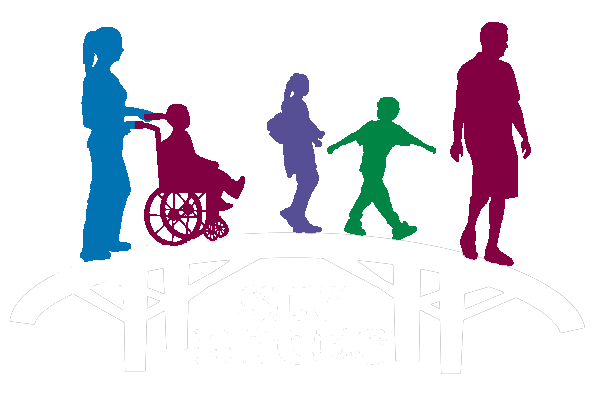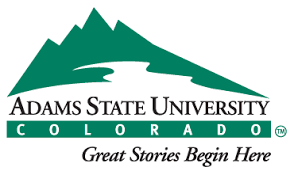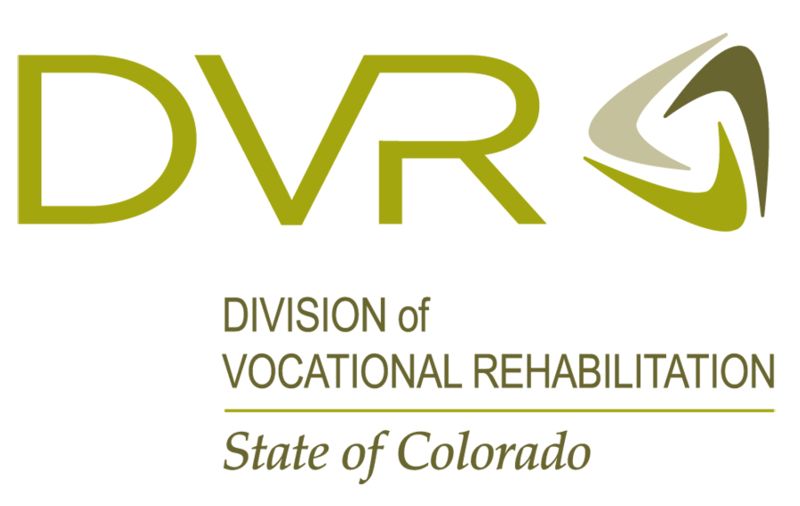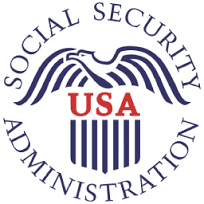Transition to Adulthood
SLV BOCES Transition Program
San Luis Valley BOCES has returned and restructured the transition program for 18-21 year old students. The program was relaunched August 29, 2022. The program consists of 5 students (as of now). The program accommodates students from all over the San Luis Valley. We teach our students how to be aware of their community by giving them tours around town such as College Buildings, Grocery Stores, Library, Bookstore, Police Station, Fire Station, and other places around town. We are also doing volunteer work in offices around Alamosa. So far, my students volunteered to do office work in at San Luis Valley BOCES. We’re still reaching out to other establishments around town to do more volunteer work. Our students just launched their small business what we called (Transition Snack House or TSH). They sell snacks, sandwiches and drinks. The students in transition program are still receiving services from Speech Language Pathologist, Psychologist, Occupational Therapy and Physical Therapy. San Luis Valley BOCES established a house complete with appliances that will help our students to live on their own. We’re training our students to know how to cook, clean, wash dishes, laundry and other things that can help them to be independent.
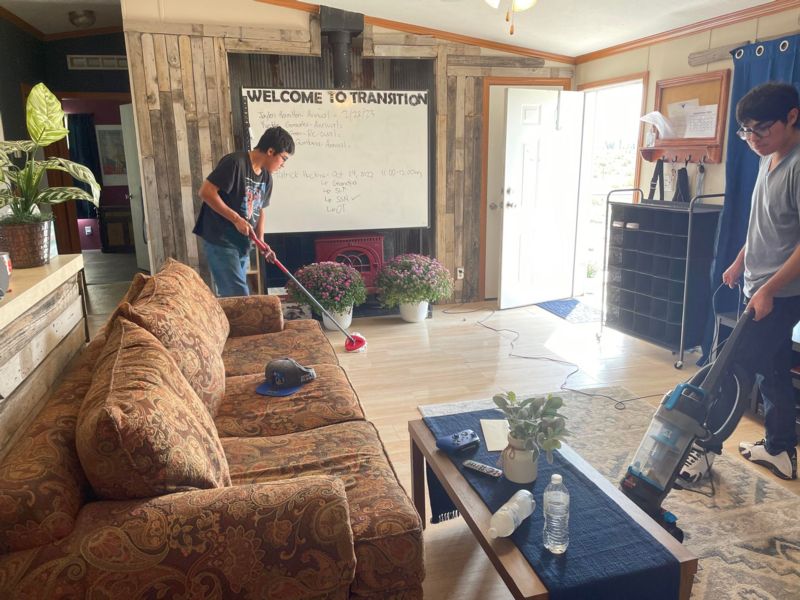

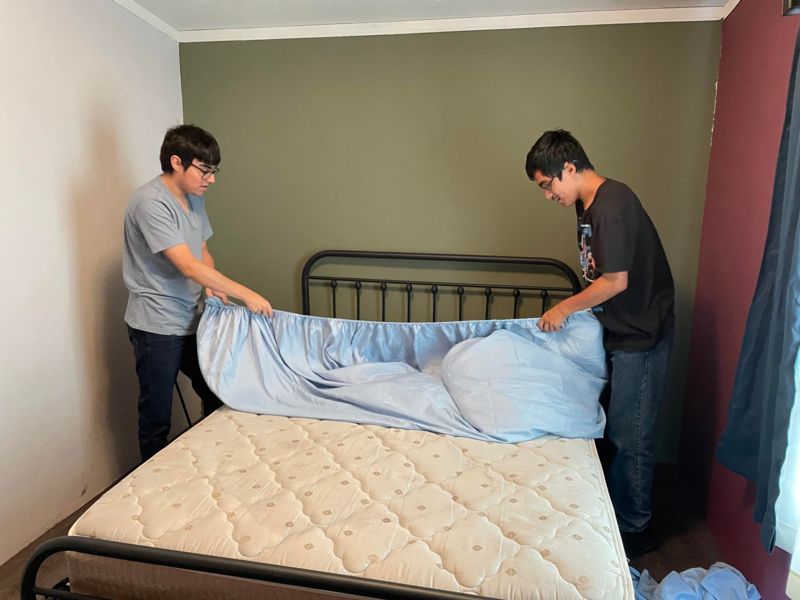

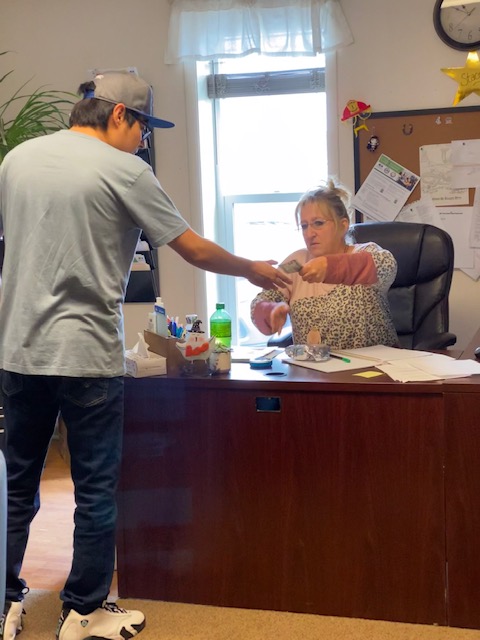
Handbook
A guide for parents in planning the transition from mandatory supports to adult services supports.
Graduation, Exit and SOP Information

The IEP process changes focus at 8th Grade or before if there are large transition to adulthood needs. The IEP focus on the needs and strengths the student has to achieve their training and work desires after they graduate from high school. The focus on academic, social and behavioral needs remains, but these skills are reviewed through the lens of achieving the students Post Secondary Goals. For an overview of Federal and State Law and Expectations, review the document below. There are 2 formats. Choose the one that meets your learning style (flow chart or bulleted items).
Overview of Transition to Adulthood IEP expectations.
Transition Planning Assistance
DCDT: Responsibilities of Special Education Teacher related to Transition to Adulthood
Guidance for supporting a student with low reading ability and documentation needed on an IEP.
I struggle with how to write an I-13 compliant IEP? See teaching examples below:
A. Jamerro B. Lilly C. Lissette D. Paulo
Other Information
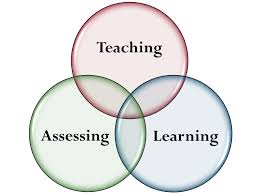
Resources for Families
Writing quality secondary transition IEPs that include the required elements of Indicator 13
A power point from students with IEP’s. Impactful statements from students!
Overview of Colorado’s Graduation Guidelines
Charting a Course for the Future – A Transition Toolkit
Technical Assistance – Office of Special Education
Scholarships and Financial Aid for Students with Disabilities
Scholarships for People with Disabilities
Graduation, Exit and SOP Information

Summary of Performance (SOP) is a required action by IDEA law. Upon Graduation or Exit from High School, schools are required to provide a summary of a student’s ability. Below are guides for completing the SOP, when to complete an SOP and examples for differing disabilities for completing the SOP.
1. What does an SOP look like? You will find this form in Enrich under + Add Action.
2. How do I fill out an SOP? What kind of information is supposed to be in an SOP?
3. When do I complete an SOP? Just at Graduation? (The answer is NO). If a student will graduate with a Diploma, complete SOP AND Graduating due to “Diploma or Maximum Age” forms in Enrich. If a student is exiting the system without a diploma, a re-eligibility meeting must occur and if it determined the student will exit, complete SOP and a Prior Written Notice. Complete the “Diploma or Maximum Age” if student has reached 21. If student drops out, maintain information in a file.
4. Samples of Completed SOP’s for 3 different types of disability.
Contact
San Luis Valley BOCES Transition House
8360 County Road 106 South
Alamosa, CO 81101
(719) 587-6868

Amiel Ariota – Transition Teacher
.jpg)
Stacey Holland
Special Education Director
sholland@slvboces.org
(719) 589-5851
Transition Curriculum

There are a large number of free and purchased curriculums available for your use in the classroom. Click on the links below to access various supports to assist you in develop lesson plans and implementing classroom instruction that meets identified transition needs.
1. Research shows students who have the ability and skill to talk about their disability and their needs are most successful in post secondary training and in their work setting. Below is a curriculum to support students in gaining skills to disclose their disability and develop appropriate skills to get their learning needs met.
Disability Disclosure Curriculum (411 on Disability)
Disability Disclosure Guide / Lesson Plan Outline
2. The link below is a booklet that lists the supports for students with disabilities at every publicly funded college in Colorado. The beginning and last section have great guides of questions students with disabilities should be able to answer as they enter a college setting.
3. How do I support a work experience for my students? Below are several documents to guide work experience. Reminder: Labor Laws guide how a work experience is designed. In addition to curriculum, you must be familiar and know Labor Laws below.
C. Soft Skills to Pay the Bills/English
D. Soft Skills to Pay the Bills/Spanish
4. Self-Determination Supports AND Student Led IEP Supports
A web link to “Whose life is it anyway?” 36 lesson plans to self directed IEP
4. Curriculum for Developing Interview, Resume and Job Skills. Complete with videos for visual learners/designed for students with autism in mind!
5. An 8 module curriculum, fully developed lesson plans and activities that focus on the difference between high school and college. A curriculum for students with LD to prepare them for college. An excellent supportive resource!!!
6. 8th – 9th GL curriculum for students to learn their strengths, how they learn, etc.
7. Below are links to curriculums for learning to budget:
A. Developing Budgeting Skills for Students with Disabilities
B. Budgeting Curriculum: National Endowment for Financial Education offers free materials for students needing to learn budgeting skills.
8. Finance in the Classroom Activties – Help Children Become Money Smart
Interagency Linkages
Interagency IEP Requirements: As a case manager you need to share with families and students resources that are available after graduation. For students with cognitive and significant delays, it is important to connect families to our local CCB which is Blue Peaks at the age of 14. Some families need support in decision making and our job is to provide information so they can make the decision. Below are descriptions of and linkages to the varying post secondary SLV agencies that support young adults with disabilities after high school graduation.
CDE Fast Facts: Adult and Community Agencies
Know your local agencies! The link below has overview information and contacts for each agency that provides supports to youth with disabilities after they graduate from high school.
In this category are links to the websites of TIGERS members. Each TIGERS member agency provides supports to adults who have completed high school (GED or diploma) or aged out.
Click on image or Click for link to each website.
Adams State University/Counseling Center
The Counseling Services Staff would like to extend the warmest invitation to you to please come by, or call and make an appointment, to chat. We always try to have a staff person available for your counseling, career and disability services needs. Contact Aftin Gillespie at
Blue Peaks Developmental Services
We are one of the private, non-profit corporations across the state of Colorado called community-centered boards, who contract with the state and Medicaid to provide services and supports for people with developmental disabilities and their families. guided by a volunteer board of directors which is composed of human services professionals, parents of persons with developmental disabilities, county representatives and service recipients.
Our mission is to support persons with developmental disabilities who reside in the San Luis Valley in achieving their fullest potential for integrated and responsible living and working within their community. Phone
Colorado Workforce-Alamosa
Try Out Our Workforce Center Services…
Each Workforce Center is part of an employment service network that links offices across the state and nationally to maximize employer job listing exposure and employment opportunities for job seekers. Come on in or give us a call.
We make it easy at no cost to you. Phone:
Colorado Workforce-Monte Vista
Try Out Our Workforce Center Services…
Each Workforce Center is part of an employment service network that links offices across the state and nationally to maximize employer job listing exposure and employment opportunities for job seekers. Come on in or give us a call.
We make it easy at no cost to you. Phone:
DVR Division of Vocational Rehabilitation
The Division of Vocational Rehabilitation assists individuals whose disabilities result in barriers to employment to succeed at work and live independently
Local Phone:
HCP-Health Care Program for Children with Special Needs
Alamosa County Public Health
8900 Independence Way AB
Alamosa CO 81101
South Central Regional Office:
Maybe you just learned that your child has special heath care needs. Or maybe you have been trying to help your child for a long time. Maybe your child is a newborn or maybe your child is a teenager. Either way, HCP will stand by you.
HCP South Central Regional Office helps you find:
Screening and clinics
Medical care, health and community services
Financial assistance
Family support groups
Answers to your questions… and more
HCP South Central Regional Office assists children:
With special health care needs, from birth to age 21, who live in these counties:
Alamosa; Chaffee; Conejos; Costilla; Custer; Fremont; Lake; Mineral; Rio Grande; Saguache
San Luis Valley Behavioral Health Group
The San Luis Valley Behavioral Health Group inspires hope, healing and well-being for the citizens of the San Luis Valley.
Our services make it possible for individuals and families to survive and thrive in our communities, to avoid frequent hospitalizations, to build supportive relationships and to work successfully toward well-being. We work with consumers as whole persons, integrating treatment and resources to support healthy minds, bodies and spirits.
We provide second chances to men and women in the criminal justice system, those with mental health and substance abuse problems so they too can become productive citizens.
We create innovative prevention services to create healthier schools, workplaces and communities for our youth and families. and support volunteers who mentor youth, volunteer in hospitals, senior centers, and libraries making a difference in people’s lives.
Phone:
Social Security Administration
A link to the National Social Security Administration website. Phone Number: Local:
SWAP/School to Work Alliance Program
SWAP is a collaborative initiative between the Colorado Division of Vocational Rehabilitation and the San Luis Valley BOCES. The SWAP program provides services to youth who: are 17-25 years of age; have mild to moderate needs in employment; are eligible for DVR services; need short term support to become competitively employed and to achieve successful community outcomes. The purpose of SWAP is to provide successful employment outcomes, increased community linkages, and new patterns of service for youth with a barrier to employment. Phone:
CDE Fast Facts: SWAP (English)
Trinidad State Junior College-Valley Campus; Student Support
The Special Populations/Disability Services Office (SPDSO) operates under the mandate of Section 504 and 508 of the Federal Rehabilitation Act of 1973 and the Americans with Disabilities Act (ADA) Amendments Act of 2008, which prohibit discrimination on the basis of disability against any “otherwise qualified individual.” Individuals seeking accommodations must give reasonable notice and provide documentation to support their request. Reasonable accommodations will be made on a case-by-case basis in order to ensure educational accessibility. Be aware that high school and college have different expectations and requirements and different laws regarding accommodations.
Phone: Alamosa Campus:
Alamosa Courts and Guardianship Support
12th Judicial Court (provides judicial services for all counties in the San Luis Valley)
Alamosa Court House
702 Fourth St.
Alamosa CO 81101
Kaylene Guymon: Self Represented Litigant Coordinator.
Can provide information for families regarding guardianship, conservatorship. CANNOT provide legal guidance. The role is to provide information, access to forms, address questions about navigating the legal system. CANNOT give legal advice.
